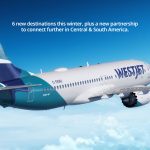Airline is in the midst of a three-year plan looking at ways to better accommodate passengers with specific needs
Air Canada’s director of customer accessibility is applauding members of the airline industry for paying increased attention to the needs of travellers with disabilities.
Kerrianne Wilson told ACTA’s Sept. 12 Eastern Canada Travel Industry Summit that many carriers are taking innovative steps to erase barriers physically challenged passengers have had to cope with, identifying her own employer along with Delta Airlines, JetBlue and United Airlines as airlines as ones that should be commended.
Among moves made by Air Canada was the creation of an accessibility advisory committee, which Wilson said serves as a “sounding board” for those wanting to raise relevant issues. The airline — which reports that it sees around 1.3 million accessibility requests annually — is now in the midst of a three-year plan looking at ways to better accommodate passengers with specific needs.
“It (catering to the needs of physically challenged travellers) is changing and this is why it’s such an exciting time to be working in accessibility… I think we’re on the cusp of a really important change,” she told her Toronto audience. “This is my goal… making travel more accessible.”

Wilson said Air Canada is committed to the “independence and dignity” of its passengers.
Specific steps being taken by Air Canada include its this year becoming the first North American airline to become part of the Hidden Sunflower Program, which provides people who have disabilities that aren’t visible — such as autism — with a discreet sunflower symbol that indicates to airline staff they they have specific needs or may need additional assistance or time.
The airline announced its participation in the program in January and added it was training front-line staff on recognizing the symbol. Wilson suggested that accommodating people with disabilities is a sound business move for airlines, with around a quarter of Canadians reporting in 2022 that they had a disability. The number of people with disabilities wanting to see the world is “a very quickly growing market,” she continued.
Wilson said those with disabilities routinely continue to face barriers, recounting a disabled acquaintance who struggled to get into an elevated restaurant entrance. Those who don’t have disabilities are often unaware of challenges those who do have them face, Wilson added. Wilson said it was heartwarming watching the recent Paralympics in Paris, which featured athletes with differing disabilities competing in different events. “I have never been so excited to watch television in my life,” she said.
—IAN STALKER

















